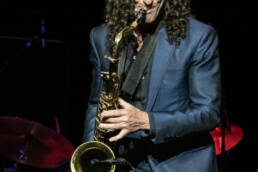Alison Krauss: The Angel of Bluegrass
The Melody That Moved Her
Alison Krauss didn’t chase music—it sang to her soul from the start. Born July 23, 1971, in Decatur, Illinois, her primary motivator was an innate connection to sound. At five, she picked up a violin, drawn by its mournful wail, a gift from her mother who saw the spark. Raised on classical lessons, she veered into bluegrass by 10, captivated by its raw honesty. For Alison, music wasn’t fame—it was family, a way to weave her shy spirit into something timeless.

A Life Rooted in Harmony
Alison’s biography is a quiet epic of talent and grace. Moving to Champaign as a child, she grew up in a household buzzing with records—her brother Viktor, later a bassist, her musical shadow. By 12, she was winning fiddle contests, her prodigy status cemented with the Walnut Valley Festival title. Signing with Rounder Records at 14, she balanced school with gigs, a reserved girl with a voice that could hush a room. Marriage to Pat Bergeson (1997-2001) brought a son, Sam, but she’s kept romance private since, letting her songs spill her heart.
A Career Strung with Strings
Alison’s career orbits Union Station, her band since 1989, with virtuosos Dan Tyminski (guitar/vocals), Jerry Douglas (dobro), Ron Block (banjo), and Barry Bales (bass)—a lineup that’s bluegrass royalty. Early days saw her with local acts like Silver Rail, but Union Station became her home. Her duet with Robert Plant on 2007’s Raising Sand stunned rock fans, their chemistry sparking rumors (all platonic). She’s guested on The Tonight Show, voiced a Phineas and Ferb character, and shined in O Brother, Where Art Thou? (2000), her soundtrack a cultural touchstone. Awards? A staggering 27 Grammys—most for any female artist—plus CMA honors and a 2011 International Bluegrass Music Hall of Fame induction with Union Station.
Her biggest hits: “When You Say Nothing at All” (Paul Overstreet/Don Schlitz), a 1995 tearjerker; “Whiskey Lullaby” (Bill Anderson/Jon Randall), a 2004 duet with Brad Paisley; “Down to the River to Pray” (traditional, arranged by Krauss), a gospel gem from O Brother; and “The Lucky One” (Robert Lee Castleman), a 2001 bittersweet beauty. Controversy? Rare—she’s dodged scandal, though her 2018 vocal cord surgery sparked fan worry (she recovered fully). A 1994 carjacking attempt in Nashville made brief headlines, but she brushed it off with Midwestern grit.
The Legacy Still Sings
Alison Krauss is bluegrass’s beating heart—an angelic voice cradling heartbreak and hope. From fiddle prodigy to genre-bending icon, she’s stitched tradition into modernity. Her Plant collaboration proved her range, but it’s Union Station’s tight-knit magic that anchors her. She’s not loud, not flashy—just profound, her music a whisper that echoes through decades.








